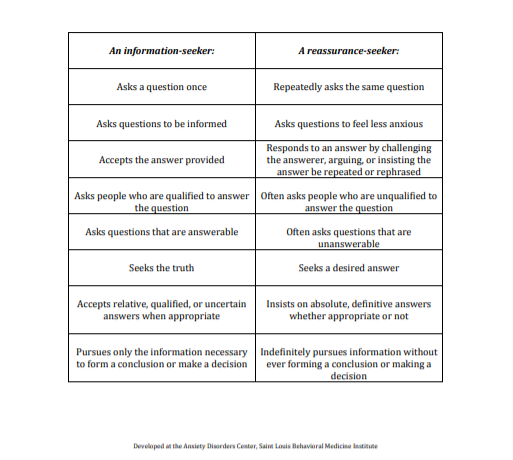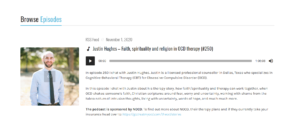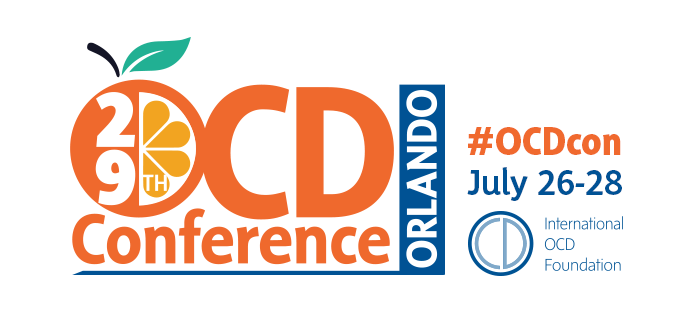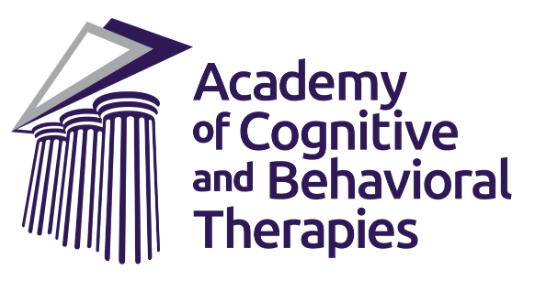
OCD & Anxiety
Effective treatments exist! Specific tools are often needed.
OCD, Anxiety, and Related Disorders- there are effective outcomes when sticking closely to the Gold Standard treatment of Cognitive Behavioral Therapy (CBT). In OCD, Exposure and Response Prevention (ERP) is additionally recommended as the first place to start.
“To get stronger, you gotta do stuff you don't think you can do, and you gotta do that stuff while simultaneously you doubt you can do it.”
Serious Treatment For Serious Challenges
Come see the difference specialization makes
You may already be very familiar with references to OCD, especially in the larger culture. “I’m soooooo OCD” is a phrase, often unhelpful to true sufferers, that reflects the current sentiments of many: Neat. Picky. High Standards. Demanding. This is NOT necessarily OCD in and of itself. If you have the real deal, know this: it’s a very challenging disorder, AND it’s highly treatable. Stigma and lack of understanding go beyond ‘pet phrases’, and even in the clinical community, evidence-based practices can often be overlooked, seen especially through exposure therapies themselves being used a minority of the time they are indicated. If you’re ready to get serious about OCD & Anxiety Treatment, whether you’re new to the treatment world or fully initiated, a strong majority of clients who complete treatment with me find significant improvement with a range of severity levels and even multiple diagnoses.
Sticking closely to the evidence, the person and therapeutic relationship in my practice is never sacrificed for purely mechanical adherence to theory. Come discover the difference of applying the best researched, first-line treatments for OCD and Anxiety Disorders.
Relevant Videos
Curated to get you started.
Effective Treatment
We all have an alarm system in our brain. “False alarms” regularly occur in OCD, making it very difficult at times to function. Find out more about it, along with effective treatment, in this video.
What is Exposure Therapy & How Do You Do It?
Exposure therapy. It often seems strange. Counterintuitive. Find out the basics of this powerful tool.
The 4 Types of Exposure Therapy
Learn the 4 types of exposure therapy with examples.
ERP 4 OCD- Ultimate Guide to treating OCD by Justin K. Hughes, MA, LPC
This FREE Training on ERP for OCD covers all the essential basics and more: – its history, the diagnosis of OCD, how exposure therapy is used, the gap between evidence and practice, and MUCH more. Find the full slides below.
Common Pitfalls in ERP 4 OCD
Evidence-based treatment for Obsessive Compulsive Disorder (OCD) is not tremendously difficult to understand. It involves things like tracking when you compulse, learning to face challenging situations without compulsion, and how to tolerate uncertainty while engaging with what you value. Sounds good, right? In practice, OCD can be very complex, and some cases are challenging to treat. But even in complex cases, the gold standard for treatment still usually applies: Exposure and Response Prevention (ERP). However, this treatment must do certain things and look out for common problems and challenges to be effective.
Egosyntonic & Egodystonic
Sometimes the things I think about are because I value them or desire them. Sometimes the things I think about are because I don’t value them or desire them. What the heck? Find out the difference between two important terms, especially helpful in treating intrusive thoughts.
OCD Gamechangers Presents Fireside Fridays with Justin K. Hughes, LPC
“Fireside Fridays began at the start of COVID to help our OCD community connect to leaders in an effort to provide support and hope during that time. As we moved through the uncertainty of the times, we realized how important these Fireside chats have been to the community. We are now hosting them with individuals doing work, projects, and advocacy in the OCD community and talking about topics that desperately need more attention and advocacy. Join us every other Friday to hear more about important but less talked about topics for OCD. In this video Justin K. Hughes, LPC, joins us to talk about OCD and Spirituality.”
OCD Question & Answer
Tag-teaming with Nathan Peterson, LCSW of OCD and Anxiety Online, we answer your questions LIVE!
OCD and Faith
“In support of those with OCD, we want you to know that you can practice your religion and seek mental health treatment. The IOCDF’s Faith and OCD Task Force presents an encouraging video featuring OCD experts, religious leaders, and those living with OCD to let you know that you are not alone. We believe it is possible for mental health providers and religious leaders to collaborate. We also believe faith and OCD do not have to be mutually exclusive! Together, we can help reduce the stigma faced in religious communities and better serve those suffering with OCD.”
Guides and Brochures
FREE for subscribers- click to get NOW!
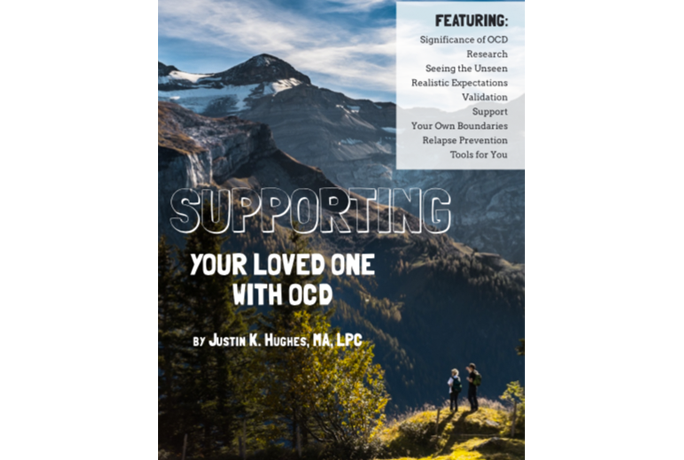
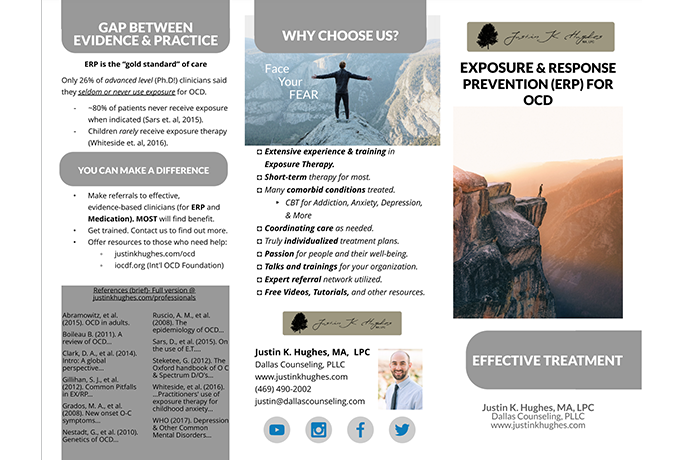
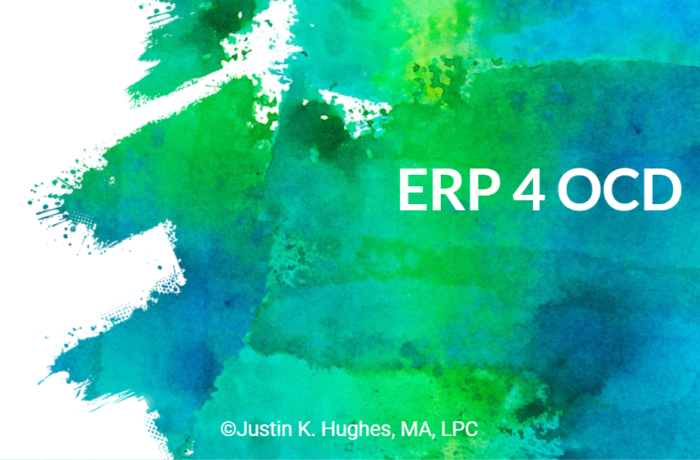
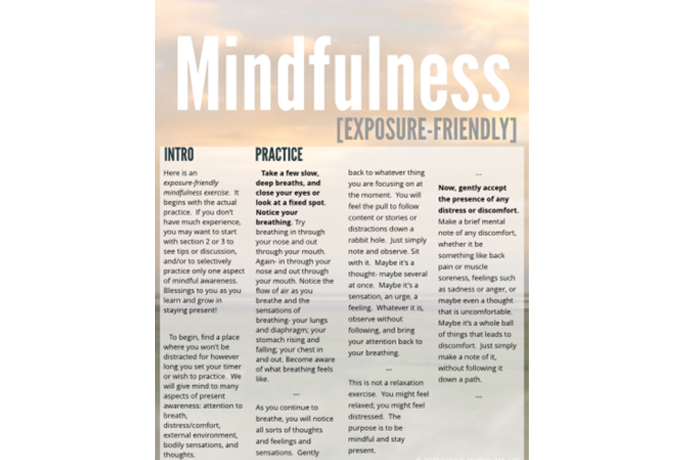
Mindfulness [Exposure-Friendly]
This guide was formulated to walk with you in being mindful in an “Exposure-Friendly” way. What do you mean? Well, mindfulness isn’t just a positive affirmation thing, in fact, that’s a type of meditation. Mindfulness is contact with the present moment. This helps you get more skilled at that, whether you’re aware of things that are comfortable or distressing. Check out the accompanying video on YouTube.
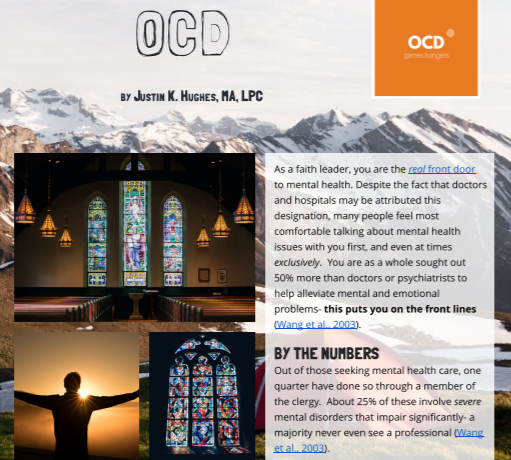
Faith Leaders- Ministering To Those With OCD
For faith leaders, it’s a reminder from the research that they/you are the real front door to mental health. Despite the fact that doctors and hospitals may be attributed this designation, many people feel most comfortable talking about mental health issues with a faith leader first. This guide is an introductory, yet thorough look into how collaboration together can benefit those who suffer with OCD.
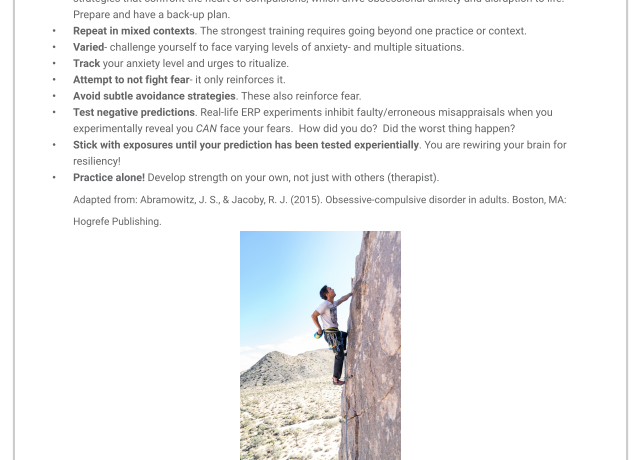
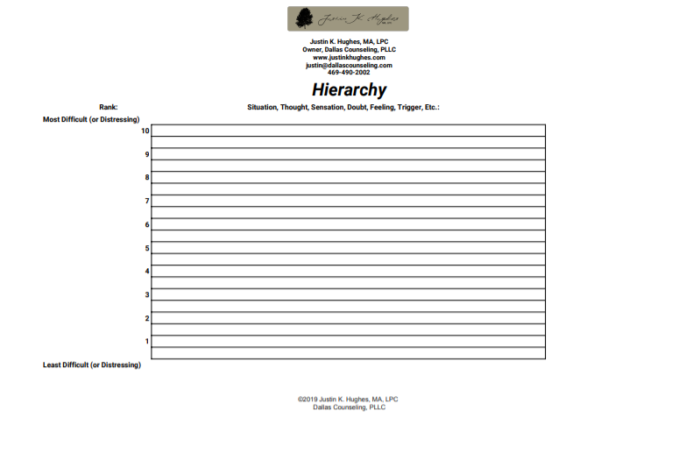
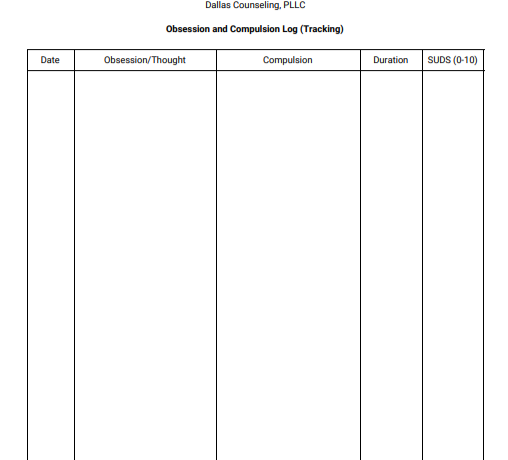
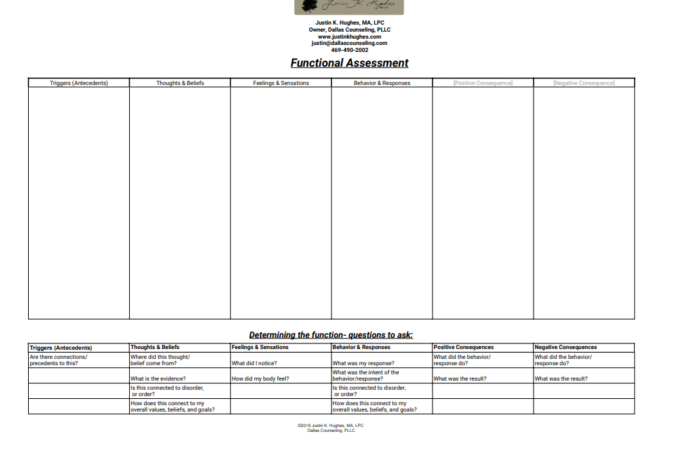
Functional Assessment
Learn how to do a simple functional assessment- looking at the related parts in a context. Start with the beginning trigger/circumstance, and though you will want to pay attention to feelings and sensations, the key work that is done in CBT is by and large focusing on what you can change in your thoughts/beliefs and behavior.
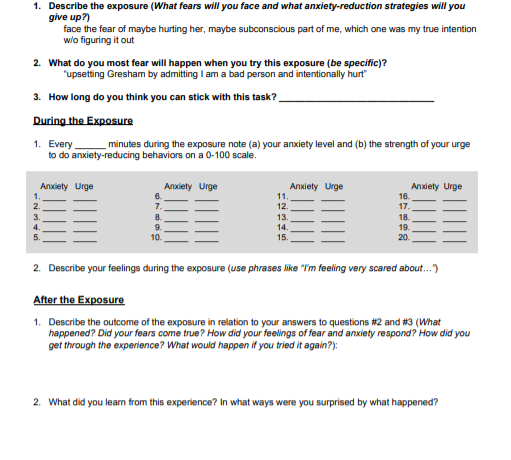
Specially Curated Resources
These are handpicked, referenced in ACTUAL therapy sessions.
(Sorry, I cannot accommodate outside requests to add to resources.)This page may contain affiliate links. This means that some links on this site will produce a small commission from affiliate sites. Read more
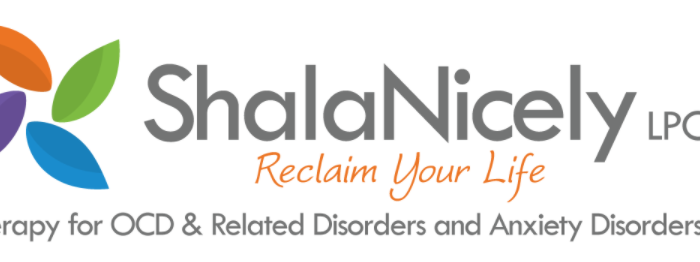
The Anatomy of ERP for OCD (Shala Nicely)
“So how exactly do I approach ERP (exposure and response prevention therapy) for OCD? I share the anatomy of ERP for OCD below, but before we get started, let me define the difference between proactive and reactive ERP.”
View >
A Short History of OCD
“‘The obsessional disorder has been badly served by its historians,’ writes historian of psychiatry G.E. Berrios, who notes that ‘there does not seem to be one book fully dedicated to its history.'”
View >
OCD- A Worldwide Leading Cause of Disability
Research into the World Health Organization’s global estimates on disability reveal an incredible impact on sufferers of OCD- and their loved ones.
View >
The A2A Alliance
“Welcome to the A2A OCD Advocacy Resource Center (ARC), an outreach project of the nonprofit Adversity 2 Advocacy Alliance, in partnership with Peace of Mind, aiming to help individuals impacted by OCD step into OCD advocacy.”
View >
Beyond the Doubt Blog (Jeff Bell / Shala Nicely)
“An inside perspective on life with OCD and the lessons of uncertainty.”
View >
Chrissie Hodges’ Website
Mental Health Advocate & Public Speaker, OCD Referral/Resource Consulting and Peer Support Services, Author.
View >
Dark Thoughts (NPR’s Invisibilia)
“What should we think about our thoughts? Invisibilia’s Alix Spiegel walks us through the secret history of thoughts, and introduces us to a man who is tormented by his own violent thoughts.”
View >
Facing Your Fears: Exposure (Anxiety BC)
“An important step in managing anxiety involves facing feared situations, places or
objects. It is normal to want to avoid the things you fear. However, avoidance prevents
you from learning that the things you fear are not as dangerous as you think.”

Howie Mandel on OCD (YouTube)
Howie Mandel, the comedian, actor, and game show host, shares of real life struggles with OCD.
View >
Imaginal Exposure for OCD and Anxiety (OCD LA)
“For many people struggling with OCD and related anxiety disorders, one of the most beneficial treatment tools is imaginal exposure. In order to best understand this technique, it is first necessary to understand the basic idea of Exposure and Response Prevention (ERP).”
View >
Nuts and Bolts of Imaginal Exposure (CCT)
“Imaginal exposure involves the client imagining the feared object or situation to evoke fear and anxiety. Research has demonstrated that direct in vivo exposure to feared objects or situations is more effective than imaginal exposure to the same circumstance. However, the combination of both exposure strategies has produced excellent outcomes and, at times, imaginal exposure is the only exposure strategy therapists can use to treat a specific fear….”
View >
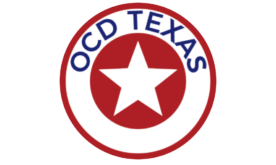
OCD Texas
“OCD TEXAS is an official affiliate of the International OCD Foundation (IOCDF) and a nonprofit support and advocacy organization for people with obsessive compulsive disorder (OCD) and related disorders.”
View >
OCD Treatment (IOCDF, Dr. Jenike)
On YouTube, “Dr. Michael Jenike talks about OCD Treatment for The Peace of Mind Foundation.”
View >

Peace of Mind
“Whether you or someone you love has been diagnosed with Obsessive-Compulsive Disorder (OCD), or if you think you may be experiencing OCD, we understand navigating treatment options and finding support can seem overwhelming. Our mission is to help you and your loved ones find evidence-based information and resources.”
View >
Relapse Prevention in OCD (Shala Nicely)
“As you go into recovery from OCD, it’s good to keep in mind that relapse
prevention is a process, and living how we want to live requires some
maintenance….”

The History of OCD (OCD UK)
“The incidence of Obsessive-Compulsive Disorder (OCD) or Obsessive Compulsive Neurosis as it was once known, is a relatively common disorder and can be traced historically, cross-culturally and across a broad social spectrum and does not appear to restrict itself to any specific group of individuals.”
View >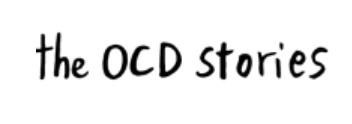
The OCD Stories
“The OCD Stories podcast is a show that aims to offer hope and inspiration. Host Stuart Ralph interviews some of the best minds in OCD treatment and recovery to share their advice, to both entertain and educate listeners towards a healthier life. The show was created in 2015. Since that time is has been downloaded over 3 million times globally.”
View >
Treating OCD: What Is ERP? (Child Mind Institute)
On YouTube, “Jerry Bubrick, PhD, interim senior director of the Anxiety and Mood Disorders Center, discusses the “gold standard” of treatment for obsessive-compulsive spectrum disorders.”
View >
What Is ERP Therapy? (Shala Nicely)
“The best way to describe exposure and response prevention (ERP) therapy… is with an example. Let’s say that you are deathly afraid of bridges…. You see them and you just freeze up. You say to yourself, ‘I didn’t want to go to what’s on the other side of the bridge anyway. I’ll just stay here.’ And so you stay there. And unfortunately, you end up staying afraid.”
View >
What is ERP? (IOCDF)
“It is possible that you may have heard of Cognitive Behavior Therapy (CBT) before. CBT refers to a group of similar types of therapies used by mental health therapists for treating psychological disorders, with the most important type of CBT for OCD being Exposure and Response Prevention (ERP).”
View >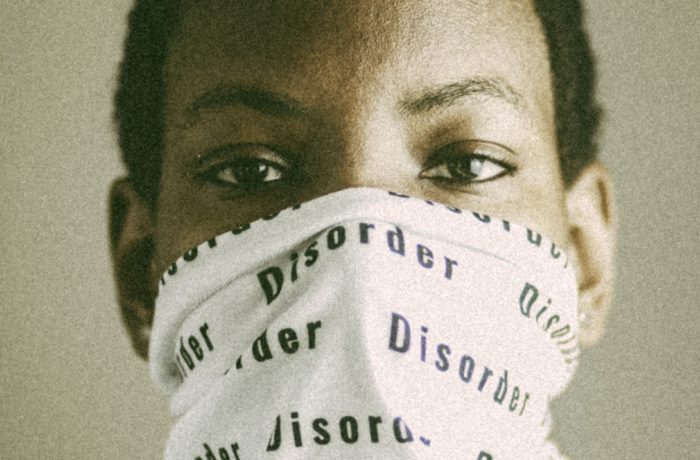
What is OCD? (Made of Millions)
“We’ve all had intrusive thoughts — upsetting ideas or images that pop into our mind for no reason. Like the thought of steering your car into oncoming traffic, or blurting something offensive out in the middle of a meeting. Most people are able to brush these thoughts off and forgot about them. But for some, they play on an endless loop, causing tremendous amounts of anxiety.”
View >
What You Need To Know About OCD pdf guide (IOCDF)
The premier organization for OCD sufferers provides this concise pdf guide.
View >
Getting Your Insurance Company To Pay For OCD Treatment (Dr. Fred Penzel)
“If you are lucky enough to be able to pay for your treatment out-of-pocket, then this article will probably not be of much interest to you. If, however, you rely on health insurance to pay for treatment, then read on.”
View >
NHL Goalie Corey Hirsch’s OCD Story (Player’s Tribune)
“It’s the summer of 1994, I am standing at the edge of a cliff in Kamloops, British Columbia, and I am checking out. In February, as a 21-year-old starting goalie, I’d backstopped Canada to an Olympic silver medal. In June, as the third goalie for the New York Rangers, I’d drunk out of the Stanley Cup.”
View >
Overcoming Unacceptable Thoughts (Houston OCD)
Check out this presentation by several notable clinicians on “overcoming unacceptable thoughts.”
View >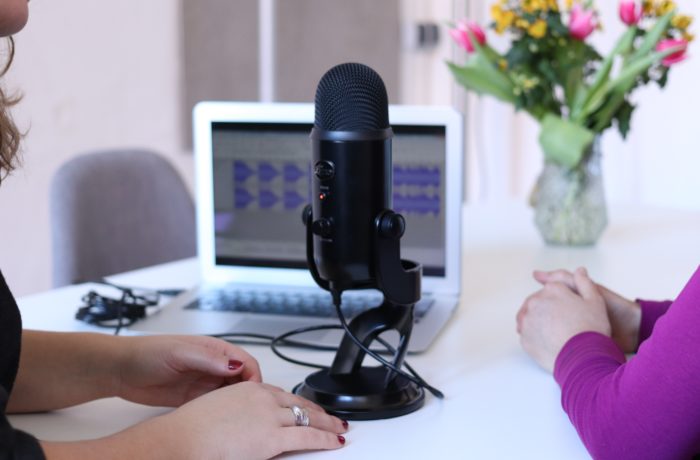
Soooo OCD podcast (Terrible, Thanks For Asking)
“OCD is one of those acronyms we use to say, “I’m a little quirky” or “I like my room to be VERY clean.” But what does it mean to actually live with OCD? I have no idea, so we asked people who do.”
View >
What Is ERP? (Shala Nicely)
“Let’s say that you are deathly afraid of bridges. Big bridges, little bridges, bridges in between….you want nothing to do with them. You see them and you just freeze up. You say to yourself, “I didn’t want to go to what’s on the other side of the bridge anyway. I’ll just stay here.” And so you stay there. And unfortunately, you end up staying afraid.
But why?
Because when we avoid what we’re afraid of, it stays this big, scary thing.”
View >
Medications for OCD (IOCDF, by Dr. Jenike)
“The types of medication that research has shown to be most effective for OCD are a type of drug called a Serotonin Reuptake Inhibitor (SRI), which are traditionally used as an antidepressants, but also help to address OCD symptoms.”
View >
TMS for OCD (IOCDF)
“We regularly receive inquiries about Transcranial Magnetic Stimulation (TMS), Deep Brain Stimulation, and other newer treatments to help those individuals who have not responded to medication or cognitive behavioral therapy (CBT).”
View >
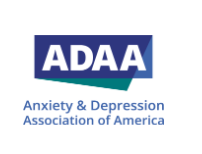
Anxiety and Depression Association of America (ADAA)
“ADAA is an international nonprofit organization dedicated to the prevention, treatment, and cure of anxiety, depression, OCD, PTSD, and co-occurring disorders through education, practice, and research.”
View >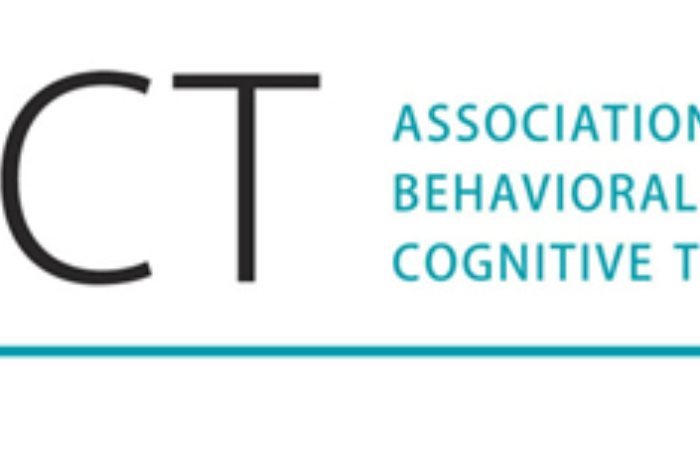
Association For Behavioral and Cognitive Therapies (ABCT)
“The Association for Behavioral and Cognitive Therapies is a multidisciplinary organization committed to the enhancement of health and well-being by advancing the scientific understanding, assessment, prevention, and treatment of human problems through the global application of behavioral, cognitive, and biological evidence-based principles.”

AT Parenting Community (Anxious Toddlers)
“My name is Natasha Daniels and I am a child therapist who specializes in anxiety & OCD. I have devoted my career to helping families raise children with these struggles.”
View >
Exposure and Desensitization (U of Mich)
“We spoke about sensitization in the section “Anxiety Fuel.” Now we’ll talk
about desensitization, which means we work to make our anxiety alarm less
sensitive, so it doesn’t go off as often or as loudly.”

Key Research Articles on ERP (Science Direct)
Check out some of the key research article on ERP from Science Direct.
View >
Key Research Articles on Imaginal Exposure (Science Direct)
“Imaginal exposure refers to patients intentionally confronting specific memories….in their imaginations either by verbally describing … or by writing a description…”
View >

AT Parenting Community (Anxious Toddlers)
“My name is Natasha Daniels and I am a child therapist who specializes in anxiety & OCD. I have devoted my career to helping families raise children with these struggles.”
View >
Kids and OCD: The Parents’ Role in Treatment (Child Mind Institute)
“By doing what comes naturally to a parent, you are inadvertently accommodating the disorder, and allowing it to take over your child’s life.”
View >

Existential and Philosophical Obsessions (Dr. Fred Penzel)
“Many of us grapple with existential questions about the meaning of life, the universe, existence, and so on, at one point in our lives. However, for those with a type of OCD called Existential OCD, or “Philosophical OCD”, these questions can become all consuming.”
View >
Fear of Causing Harm (Beyond OCD)
“Individuals with OCD frequently have fears that they or someone they care about will be harmed. These fears often lead to checking behavior – checking that doors are locked, for example, to prevent intruders from getting into the house. Or making sure that all electrical items are turned off so a fire doesn’t start. But in many cases, people with OCD are fearful that they may cause harm – physical, sexual, or mental.”
View >
Harm OCD: Symptoms and Treatment (OCD LA)
“Harm OCD is a manifestation of Obsessive Compulsive Disorder (OCD) in which an individual experiences intrusive, unwanted, distressing thoughts of causing harm. These harming thoughts are perceived as being ego-dystonic, which simply means that the thoughts are inconsistent with the individual’s values, beliefs and sense of self.”
View >
Living With Pure OCD (Made of Millions)
“Purely Obsessional OCD, also known as Pure O, is a type of OCD in which a sufferer engages in hidden compulsions.”
View >
Living With Religious OCD (Made of Millions)
“As a subset of OCD, Scrupulosity means you’re constantly preoccupied with doing the right thing. Religiously. Morally. Ethically.”
View >

OCD & Scrupulosity for Christians (ACCFS)
Blog articles from Dr. Ted Witzig on OCD & Scrupulosity in Christians.
View >

Cognitive Defusion (ACBS)
“Purpose: See thoughts as what they are, not as what they say they are. Method: Expand attention to thinking and experiencing as an ongoing behavioral process, not a causal, ontological result.”
View >
Cognitive Defusion (The Washington Center for Cognitive Therapy)
“CDef (originally called cognitive distancing by the founder of cognitive therapy, Dr. Aaron Beck) is a process where — under certain circumstances — we choose a different relationship with the stream of thought that flows through our heads.”
View >
Core Fear Conceptualization (Dr. Michael Greenberg)
Dr. Michael Greenberg offers a great overview of the role of a core fear in the treatment of OCD. Central to CBT, such conceptualization has many practical applications, such as tightening treatment planning and strengthening outcomes. Jump to his core fear worksheet here or click on the blog link below.
View >
Interoceptive Exposure Handout (U of Michigan Medicine)
“Internal cue exposure means that the trigger for our anxiety is internal, or inside our bodies. This type of exposure is
used most often for people that struggle with Panic Disorder. Anyone who has had a panic attack knows how
uncomfortable it is; this is the “fight or flight” response at its worst!” This handout helps you understand how to counter through Interoceptive Exposure.
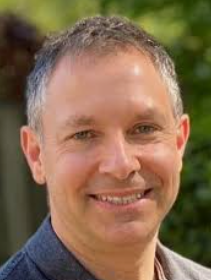
Jonathan Abramowitz’s site
His name is eponymous with OCD and Anxiety Research. He offers great free resources on his site.
View >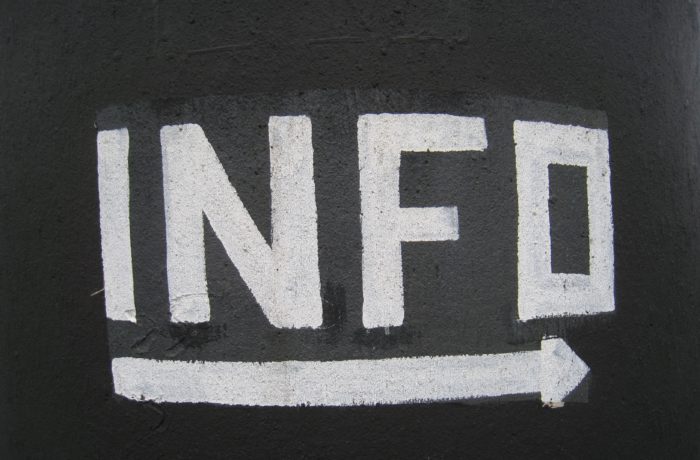
Distinguishing Information-Seeking and Reassurance Seeking
This helpful chart is an educational guide separating info-seeking from reassurance.
View >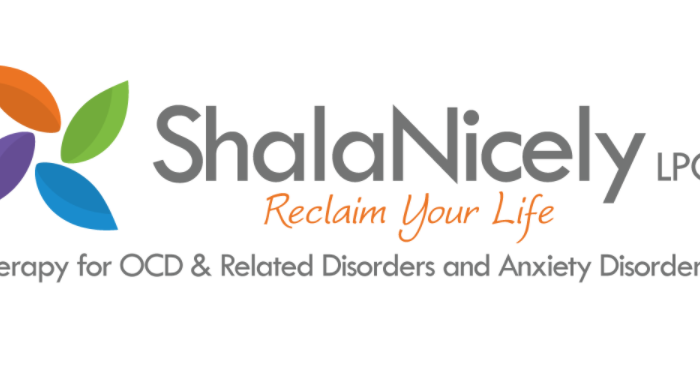
“May” or “May Not” Exposure Scripting (Shala Nicely)
“…MOMN statements, which are a type of exposure scripting, can be used with any type of OCD content…because OCD is not about the content!”
View >
7 Metaphors for Cognitive Defusion (Steven Handel)
“‘Cognitive defusion’ describes the process of accepting your thoughts while at the same time distancing yourself and not clinging to them. Here are 7 great metaphors that illustrate this concept perfectly.”
View >
Cognitive Defusion (ACBS)
“Purpose: See thoughts as what they are, not as what they say they are. Method: Expand attention to thinking and experiencing as an ongoing behavioral process, not a causal, ontological result.”
View >
Cognitive Defusion (The Washington Center for Cognitive Therapy)
“CDef (originally called cognitive distancing by the founder of cognitive therapy, Dr. Aaron Beck) is a process where — under certain circumstances — we choose a different relationship with the stream of thought that flows through our heads.”
View >
Core Fear Conceptualization (Dr. Michael Greenberg)
Dr. Michael Greenberg offers a great overview of the role of a core fear in the treatment of OCD. Central to CBT, such conceptualization has many practical applications, such as tightening treatment planning and strengthening outcomes. Jump to his core fear worksheet here or click on the blog link below.
View >
Distinguishing Information-Seeking and Reassurance Seeking
This helpful chart is an educational guide separating info-seeking from reassurance.
View >

Interoceptive Exposure Handout (U of Michigan Medicine)
“Internal cue exposure means that the trigger for our anxiety is internal, or inside our bodies. This type of exposure is
used most often for people that struggle with Panic Disorder. Anyone who has had a panic attack knows how
uncomfortable it is; this is the “fight or flight” response at its worst!” This handout helps you understand how to counter through Interoceptive Exposure.

Jonathan Abramowitz’s site
His name is eponymous with OCD and Anxiety Research. He offers great free resources on his site.
View >
“May” or “May Not” Exposure Scripting (Shala Nicely)
“…MOMN statements, which are a type of exposure scripting, can be used with any type of OCD content…because OCD is not about the content!”
View >
Social Anxiety Coping Strategies (McGill University)
This excellent overview of effective supports for Social Anxiety provides tangible exercises.
“Most people feel shy because they worry about other’s perceptions of them. However, if this worry becomes persistent and disrupts daily life, leading to the use of drugs or alcohol to facilitate their social skills, or turning down opportunities that require public speaking, they are exhibiting signs of social anxiety disorder. Social anxiety is described as a pervasive fear of social situations in which an individual might be subjected to humiliation or scrutiny.”
View >
Find Help (IOCDF)
The most advanced search tool to find OCD therapists, advocacy, groups, clinics, and programs.
View >
My OCD Community (Health Unlocked)
“My OCD Community is a safe, supportive, informative, and friendly community for all people affected by OCD. It also supports all people affected by OCD related disorders….”
View >
NOCD App and Therapy
NOCD provides a platform across the U.S. and in parts outside to offer resources and affordable therapy.
View >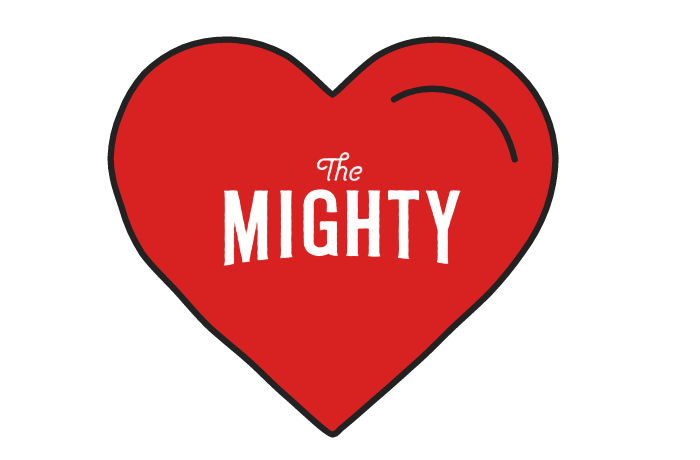
OCD Community (The Mighty)
“We’re a community that supports each other by sharing our experiences.”
View >

OCD Texas
“OCD TEXAS is an official affiliate of the International OCD Foundation (IOCDF) and a nonprofit support and advocacy organization for people with obsessive compulsive disorder (OCD) and related disorders.”
View >
OCD Community (Patients Like Me)
“By sharing your stories and data, you will: help each other live better and uncover the best ways to manage your health today, help researchers shorten the path to new treatments tomorrow.”
View >
Coping Statements For Christians With OCD and Scrupulosity (ACCFS)
A list and downloadable sheet on statements when in deep uncertainty.
View >
OCD & Scrupulosity for Christians (ACCFS)
Blog articles from Dr. Ted Witzig on OCD & Scrupulosity in Christians.
View >
OCD and the Death of the Christian (Desiring God)
This article helps explore the faith component involving trust in God while having OCD. While it does not provide resources as to treatment, it offers some important considerations underscoring the bigger picture of seeking God while having a debilitating disorder.
View >
Religious and Moral Scrupulosity in Christians (ACCFS)
Dr. Ted Witzig talks on this important topic: “Scrupulosity is a subtype of OCD where religious and moral matters become entwined in the obsessive-compulsive cycle. People suffering with this disorder worry that they have sinned or done something immoral, even when they have not.”
View >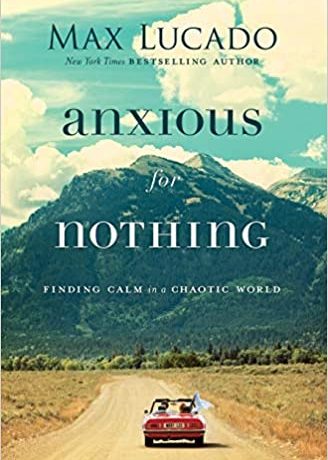
Anxious for Nothing: Finding Calm in a Chaotic World
“Does the uncertainty and chaos of life keep you up at night? Is irrational anxiety your constant companion? Let God help you win the war on worry and receive the lasting peace of Christ. We all encounter anxiety, but we don’t have to let worry and fear control our lives. Anxious for Nothing, from New York Times bestselling author, Max Lucado, provides a roadmap for battling with and healing from anxiety.”
View >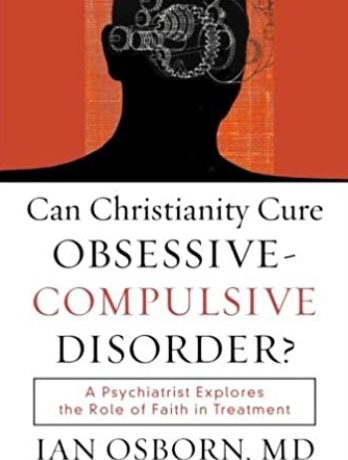
Can Christianity Cure ObsessiveCompulsive Disorder?: A Psychiatrist Explores the Role of Faith in Treatment by Ian Osborn, MD
“Obsessive compulsive disorder (O.C.D.) is a relentless condition, the primary symptom being the occurrence of terrifying ideas, images, and urges that jump into a person’s mind and return again and again, despite the individual’s attempt to remove them. Christians who suffer from O.C.D. may grapple with additional guilt, as the undesired thoughts are frequently of a spiritual nature. Yet people may be surprised to learn that some of the greatest leaders in Christian history also struggled with this malady. What did they experience? How did they cope? Were they able to overcome these tormenting, often violent, obsessions? Where did God fit into the picture? Ian Osborn shares the personal accounts of Martin Luther, John Bunyan, and Saint Thérèse of Lisieux, as well as his own story, in exploring how faith and science work together to address this complex issue.”
View >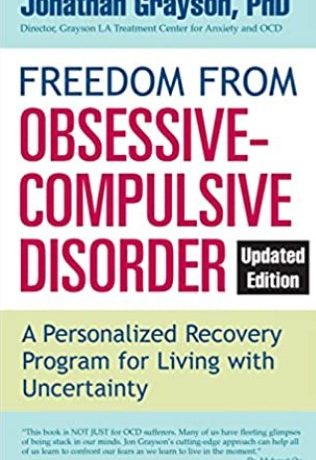
Freedom from Obsessive Compulsive Disorder: A Personalized Recovery Program for Living with Uncertainty, Updated Edition by Jonathan Grayson PhD
“Nearly six million Americans suffer from the symptoms of obsessive-compulsive disorder, which can manifest itself in many ways: paralyzing fear of contamination; unmanageable “checking” rituals; excessive concern with order, symmetry, and counting; and others. Freedom from Obsessive-Compulsive Disorder provides Dr. Jonathan Grayson’s revolutionary and compassionate program for finally breaking the cycle of overwhelming fear and endless rituals….”
View >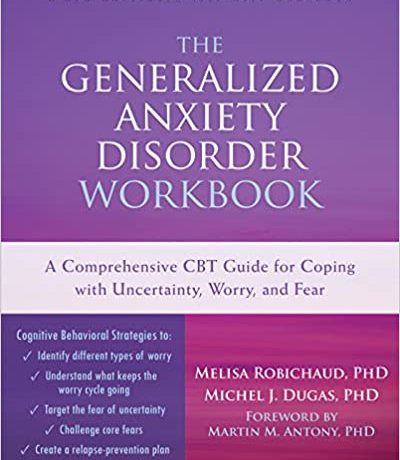
Generalized Anxiety Disorder Workbook: A Comprehensive CBT Guide for Coping with Uncertainty, Worry, and Fear
“Based in cognitive behavioral therapy (CBT), this book provides real, proven-effective solutions. Written by three renowned anxiety experts, the book offers practical exercises and strategies to help soothe your worst worries, fears, and panic. The book focuses on what most often leads you to worry―the fear of uncertainty. In a nutshell, people with GAD worry as a way of mentally planning and preparing for any outcome that life throws their way. With this book, you’ll learn to stop seeing uncertainty as threatening―which will in turn, reduce your anxiety and instill a sense of calm. If you’re ready to stop letting your worries get the better of you, this easy-to-use workbook will help you―one step at a time.”
View >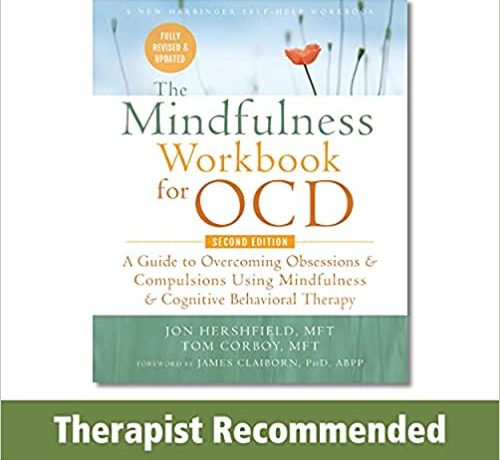
The Mindfulness Workbook for OCD: A Guide to Overcoming Obsessions and Compulsions Using Mindfulness and Cognitive Behavioral Therapy
“If you have obsessive-compulsive disorder (OCD), you might have an irrational fear of being contaminated by germs, or obsessively double-check things. You may even feel like a prisoner, trapped with your intrusive thoughts. And while OCD can have a devastating impact on your life, getting real help can be a challenge.”
View >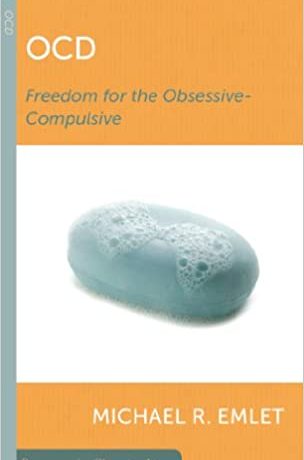
OCD: Freedom for the Obsessive-Compulsive (Resources for Changing Lives) by Mike Emlet
This very basic overview offers some perspective on the larger lens of seeing Christ while suffering with OCD, along with short references to treatments at large. My caution is that it does not offer very practical guidance, but it is an important booklet presenting some initial ideas on the bigger picture of Christian faith.
View >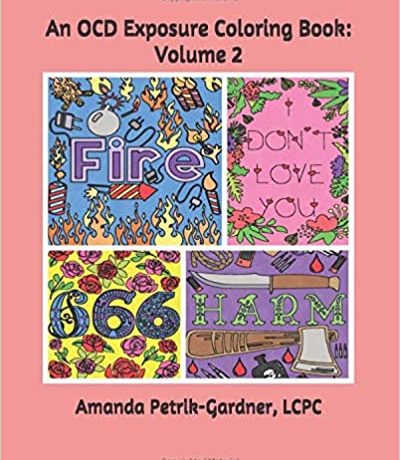
An OCD Exposure Coloring Book: Volume 2
“Volume 2 of An OCD Exposure Coloring Book has been developed and created due to the overwhelming and positive response to the first book. In addition to over 20 exposure coloring pages, a list of exposure ideas has been included this time around so you know the different possibilities of how this book can be utilized in your treatment process.”
View >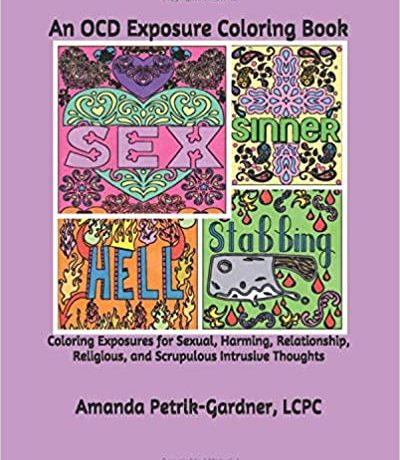
An OCD Exposure Coloring Book: Coloring Exposures for Sexual, Harming, Relationship, Religious, and Scrupulous Intrusive Thoughts
“This coloring book is dedicated to the many individuals diagnosed with Obsessive Compulsive Disorder. This diagnosis is often misunderstood; the general population believing OCD is all about being ‘clean and tidy.’ I hope this is one more resource that corrects that misconception. Obsessions can include a variety of debilitating and stressful themes including sexual, harming, relationship, religious, and scrupulous thoughts, to name a few.”
View >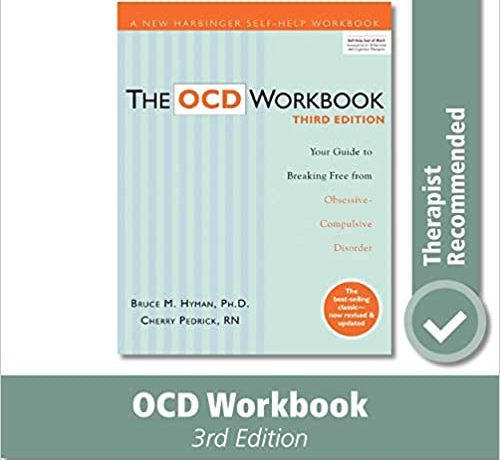
OCD Workbook: Your Guide to Breaking Free from Obsessive Compulsive Disorder (A New Harbinger Self-Help Workbook)
“If you have obsessive-compulsive disorder (OCD), chances are that your persistent obsessive thoughts and time-consuming compulsions keep you from enjoying life to the fullest. But when you are in the habit of avoiding the things you fear, the idea of facing them head-on can feel frightening and overwhelming. This book can help.”
View >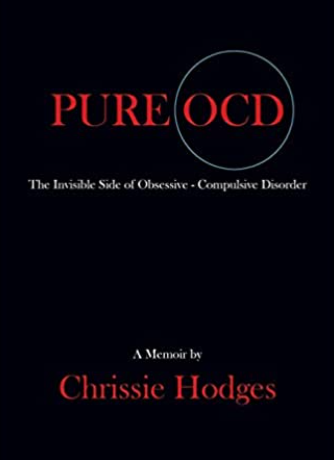
PURE OCD: The Invisible Side of Obsessive-Compulsive Disorder (Chrissie Hodges)
“Pure O: The Invisible Side of Obsessive-Compulsive Disorder follows Chrissie Hodges, a typical eight year old whose life changed drastically with the onset of symptoms from Pure OCD.”
View >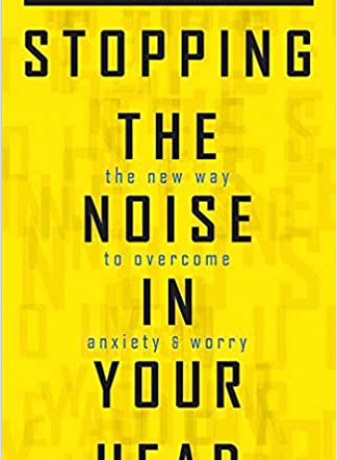
Stopping the Noise In Your Head (Dr. Reid Wilson)
“Dr. Reid Wilson proposes a groundbreaking, paradoxical approach to overcoming anxiety, worry, OCD, panic, and phobias by moving away from comfort, confidence, and security and willingly moving toward uncertainty, distress and discomfort.”
View >
ERP For OCD Group- ON HIATUS
Welcome to thriving while having OCD.
This Group is currently on hiatus with no current start-up date projected.
Ready to go deeper and connect with others who share a common focus? This group is serious about life-long engagement and the pursuit of goals without letting OCD get in the way! Comorbid diagnoses are treated in group insomuch as they do not deter from group focus. Screening is required to ensure each group member can benefit. This is an advanced level group, meaning that while newcomers may not have as much experience, most group members are well-advanced in utilizing CBT, ERP, and more.
Requirements:
- Minimum 12 week commitment with these prerequisites:
-
- Basic understanding of CBT and ERP for OCD. This requires having had education on these topics in a clinical setting.
- Experience with developing and successfully implementing exposures in counseling sessions and outside of them.
- No clinical “detours” (e.g., untreated addiction, trauma, severe depression) that need treatment first.
-
- All clients must go through at least 2 individual counseling sessions to screen for appropriateness. If prerequisites for the group are not met, sessions can help prepare to join.
Ready To Boost Your Outcomes In A Group? Fill In The Form Below:
From My Blog
Related posts from my blog
Keeping the Faith: How to Ethically and Competently Treat Religious Scrupulosity
Find me presenting at OCD Con 2024!! TITLE: Keeping the Faith: How to Ethically and Competently Treat Religious Scrupulosity TRACK: Clinician–Advanced DATE/TIME: Saturday, July 27, 2024 at 9:45 AM – 11:15 AM Description: Providing effective and respectful care to individuals with religious scrupulosity challenges even the most experienced OCD therapists. Our individual biases and lack […]
Read More >“How Pastors Can Be Mental Health Advocates”–My New Article for BioLogos is out now
Featured in the BioLogos May blog for Mental Health Awareness month, I was asked to speak about how OCD has been handled inside and outside the church–and how pastors are the real front door of care. It is a dream to write for BioLogos as it was founded by Francis Collins, a follower of Christ […]
Read More >OCD & The Creative Act–By Jacob Tilton
Jacob Tilton is the Director of Music Ministries at Redeemer Presbyterian Church in San Antonio, TX. This is his second article with justinkhughes.com, shedding insight into both personal experience with OCD and Anxiety while walking the road of following Jesus. Around here, I’m all about helping people get unstuck. It is a joy to elevate […]
Read More >Values-Based Therapy for Sexual Obsessions–By Dr. Johann D’Souza
Around here, I’m all about helping people get unstuck. It is a joy to elevate voices of hope. Today’s guest article is by my colleague Dr. Johann D’Souza who is out “crushing it” in the area of clinical treatment of OCD and Anxiety, especially with teens. Join my free newsletter to be the first to […]
Read More >Is There Enough Grace for my Intrusive Thoughts?–By Meghan Newkirk
Around here, I’m all about helping people get unstuck. It is a joy to elevate voices of hope. Meghan’s story is bringing just that to many people. I hope you enjoy her guest article. Join my free newsletter to be the first to receive articles, stories, announcements, and free ebooks: www.justinkhughes.com/getunstuck Is There Enough […]
Read More >The #1 Mistake Clinicians Make When “Treating” OCD–New Article Published in the Newsletter of the Academy of Cognitive and Behavioral Therapies
There is one key mistake I come across from clinicians who try to work with OCD but lack training or experience treating it. Simply put, they “play with” obsessions rather than treating the nature of the problem. This can turn into well-meaning psychotherapy being a “rumination-fest” filled with reassurance from the clinician. Clients don’t usually […]
Read More >Stay in the know with regular articles to your inbox


